BRITISH COLUMBIA –
FPX Nickel of Vancouver has results from three of the eight diamond drill holes in the Baptiste deposit at the Decar nickel-iron project 80 km north of Fort St. James. These are the first holes drilled at the project since 2012, and they support the potential for resource expansion beyond the limits of the 2013 preliminary economic assessment.
[caption id="attachment_1003720474" align="alignleft" width="300"]
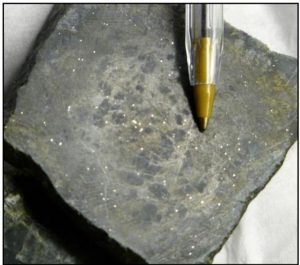 Mineralization at the Decar project consists of awaruite, a naturally occurring nickel-iron alloy. (Credit: FPX Nickel)
Mineralization at the Decar project consists of awaruite, a naturally occurring nickel-iron alloy. (Credit: FPX Nickel)[/caption]
FPX says high grade nickel mineralization was cut over broad, near surface intervals in hole 63 and 65 collared 250 metres east and 420 metres southeast, respectively, of the previous pit outline. Hole 63 intersected 104 metres grading 0.164% nickel starting at a vertical depth of 66 metres. Hole 65 cut 132 metres grading 0.147% nickel beginning 22 metres below surface. Mineralization at the Decar property is a disseminated, coarse grained nickel-iron alloy (awaruite) hosted in ultramafic rocks.
Previous drilling from 2010 to 2012 defined mineralization along a 2.5-km strike length, and the new results expand the strike length a further 650 metres in a southeast direction.
Further information about the Decar project is available at
www.FPXnickel.com.
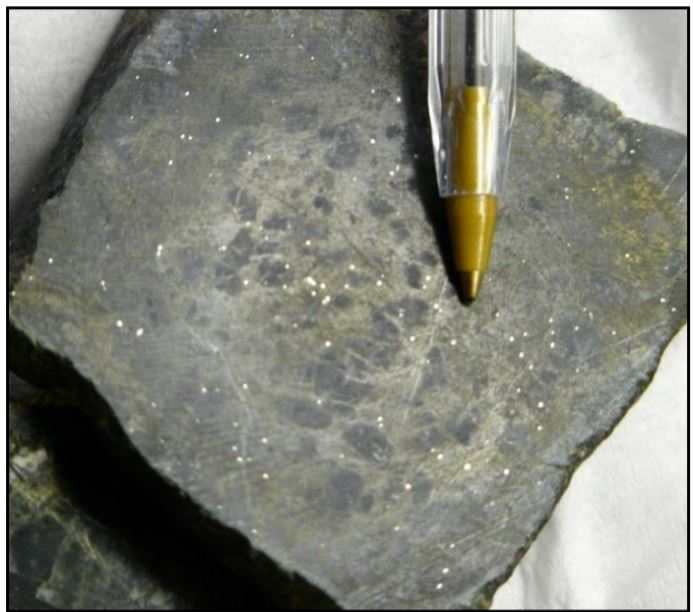
 Mineralization at the Decar project consists of awaruite, a naturally occurring nickel-iron alloy. (Credit: FPX Nickel)[/caption]
FPX says high grade nickel mineralization was cut over broad, near surface intervals in hole 63 and 65 collared 250 metres east and 420 metres southeast, respectively, of the previous pit outline. Hole 63 intersected 104 metres grading 0.164% nickel starting at a vertical depth of 66 metres. Hole 65 cut 132 metres grading 0.147% nickel beginning 22 metres below surface. Mineralization at the Decar property is a disseminated, coarse grained nickel-iron alloy (awaruite) hosted in ultramafic rocks.
Previous drilling from 2010 to 2012 defined mineralization along a 2.5-km strike length, and the new results expand the strike length a further 650 metres in a southeast direction.
Further information about the Decar project is available at
Mineralization at the Decar project consists of awaruite, a naturally occurring nickel-iron alloy. (Credit: FPX Nickel)[/caption]
FPX says high grade nickel mineralization was cut over broad, near surface intervals in hole 63 and 65 collared 250 metres east and 420 metres southeast, respectively, of the previous pit outline. Hole 63 intersected 104 metres grading 0.164% nickel starting at a vertical depth of 66 metres. Hole 65 cut 132 metres grading 0.147% nickel beginning 22 metres below surface. Mineralization at the Decar property is a disseminated, coarse grained nickel-iron alloy (awaruite) hosted in ultramafic rocks.
Previous drilling from 2010 to 2012 defined mineralization along a 2.5-km strike length, and the new results expand the strike length a further 650 metres in a southeast direction.
Further information about the Decar project is available at 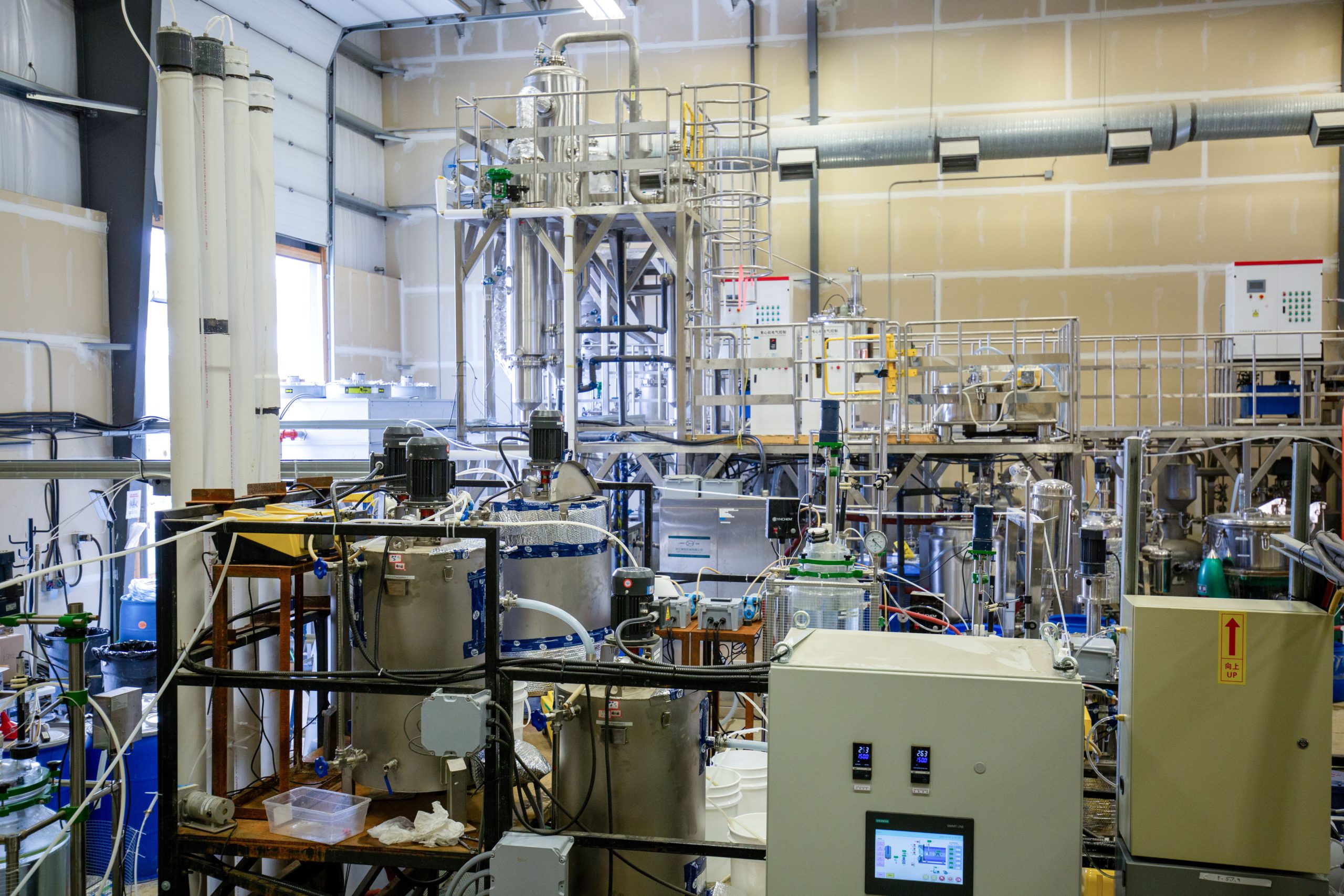
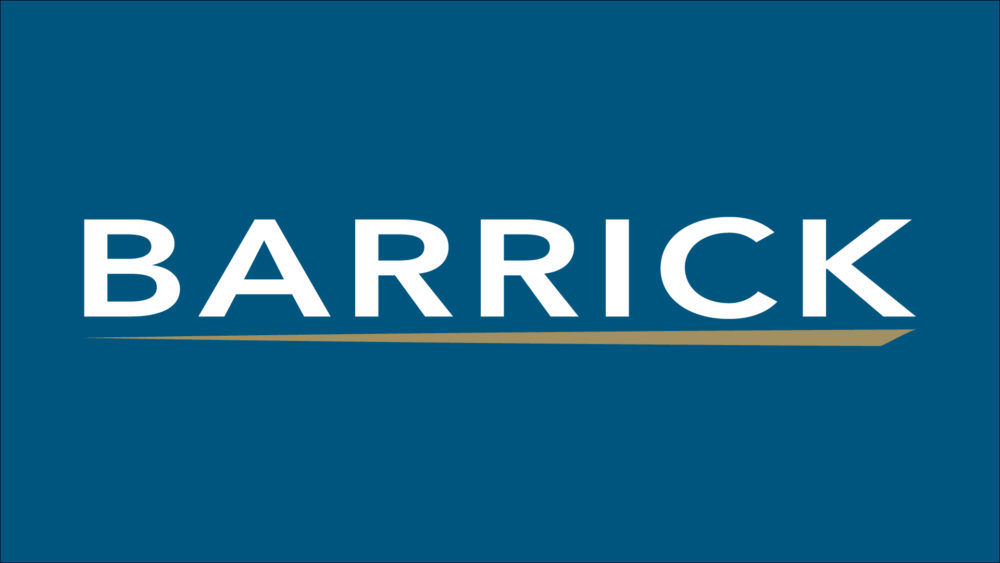


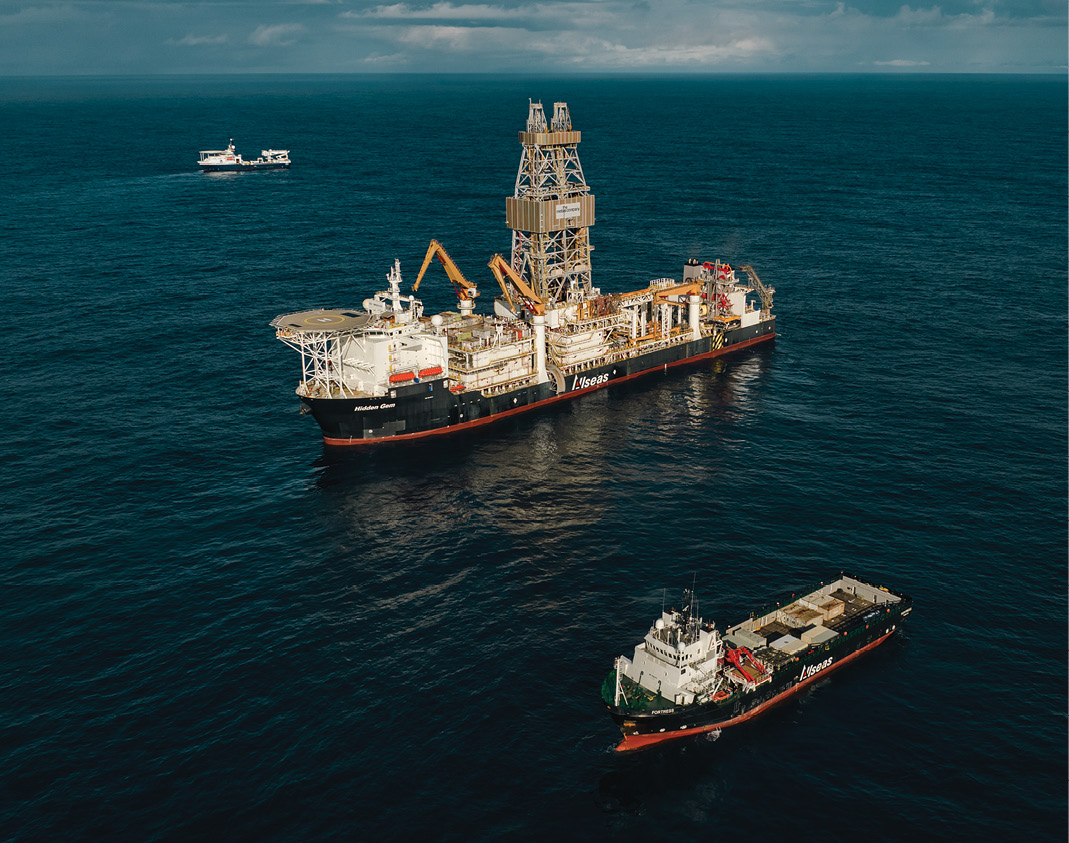
Comments